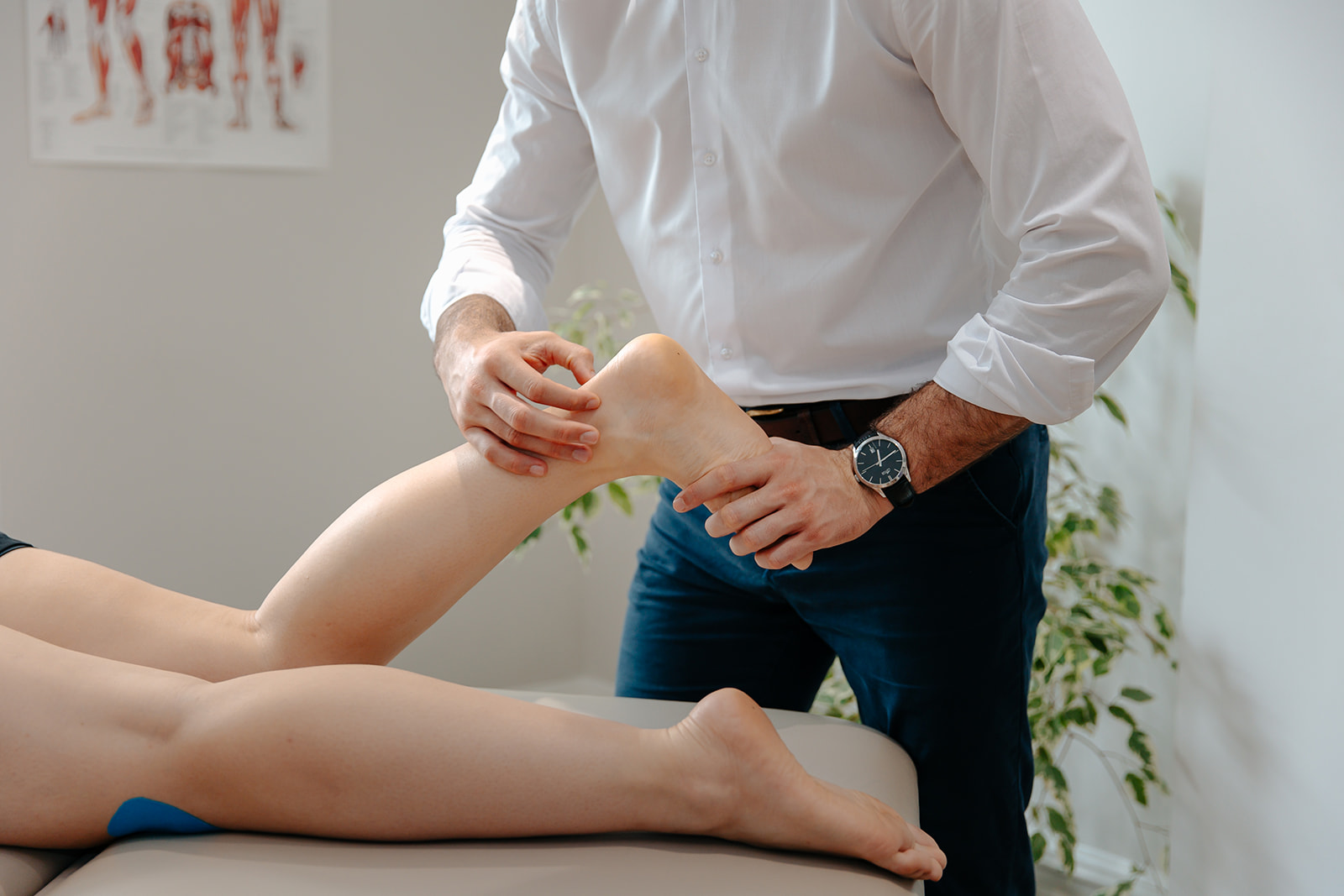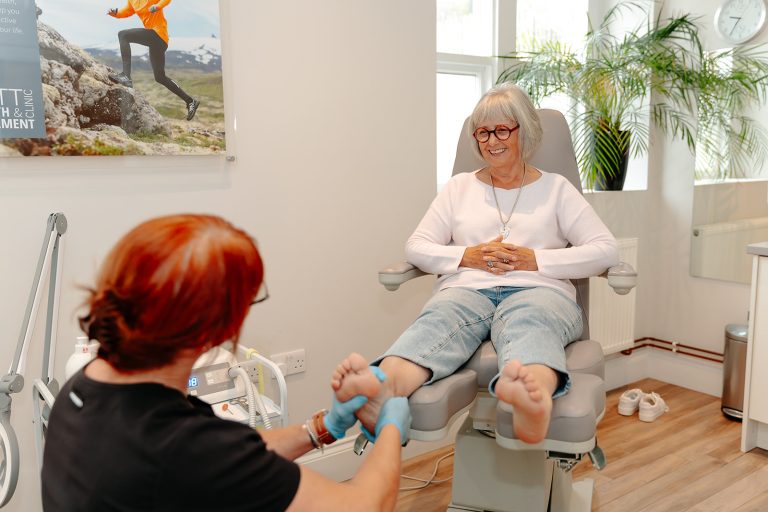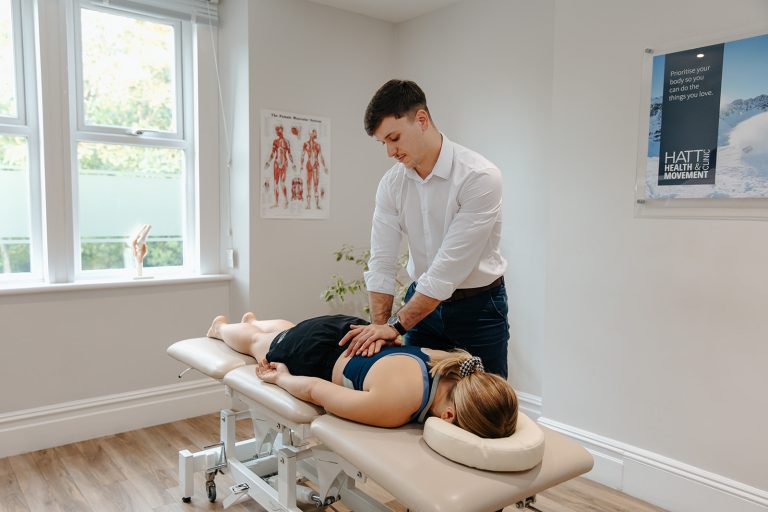December 09, 2021
Plantar Fasciitis
July 18, 2023

What is Plantar Fasciitis?
Plantar Fasciitis (or plantarfasciopathy) affects approximately 10% of the population and is most commonly seen in middle-aged adults and in athletes. It feels like a sharp pain in the heel of the foot and is caused when the strong fibrous tissue that joins the heel to the ball of the foot gets irritated and inflamed. The condition is derived from the words plantar which is the bottom of the foot, and fascia which is the fibrous connective tissue responsible for supporting the arch and transmitting weight across the foot as you walk or run.
What are the symptoms of Plantar Fasciitis?
The most common symptom is a sharp pain at the bottom of the heel, which can sometimes feel like walking on a marble. It is usually worse when you get to your feet first thing in the morning, or if you walk or run after a period of inactivity. In some cases, pain can also extend along the bottom of the foot where the plantar fascia extends to join the ball of the foot.
What causes Plantar Fasciitis?
Irritation or inflammation of the plantar fascia can be caused by 2 main factors: intrinsic and extrinsic.
Intrinsic factors include:
- Feet with very high arches or very low arches
- Feet that roll inwards while walking
- Tight Achilles tendons or calf muscles
- Being overweight
- Significant hormonal changes
Extrinsic factors include:
- Standing on your feet for a large part of the day
- Wearing footwear that does not support the foot correctly
How we can help treat Plantar Fasciitis?
Plantar Fasciitis is a treatable condition, with many different options available depending on individual circumstances. At your Gait Analysis appointment, your Podiatrist will determine the cause of your Plantar Fasciitis and recommend a treatment plan that is bespoke to you. This could include:
Orthotics: The most effective treatment for Plantar Fasciitis is the use of custom orthotics or insoles. Orthotics are suitable for people of all ages and because they are bespoke to your foot, offer the exact support required to aid your foot’s normal function and relieve the cause of your Plantar Fasciitis.
Shockwave Therapy: This is an excellent treatment option for chronic or resistant cases and helps increase your healing capacity. This treatment works best alongside other treatments listed here.
Corticosteroid Injection: This can be effective at relieving symptoms in the short term. Your Podiatrist will use corticosteroid injections in combination with other treatment options such as stretching, strengthening, or orthotics.
Physiotherapy or Rehabilitation: We may also recommend seeing a Physiotherapist or Rehab Therapist to get an individually prescribed exercise programme to help build strength in weak muscles that could be causing your Plantar Fasciitis.
Manual Therapy: If your Plantar Fasciitis is caused due to tight calf muscles, our Manual Therapists can help to ease the tension in your muscles, thereby addressing the cause.
Night splint: The use of a night splint may be recommended to help prevent overnight tightness of the Achilles tendon and plantar fascia.



